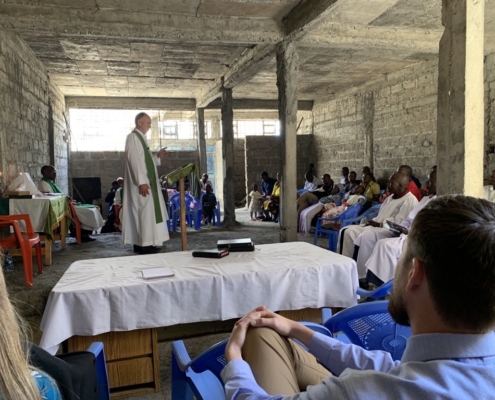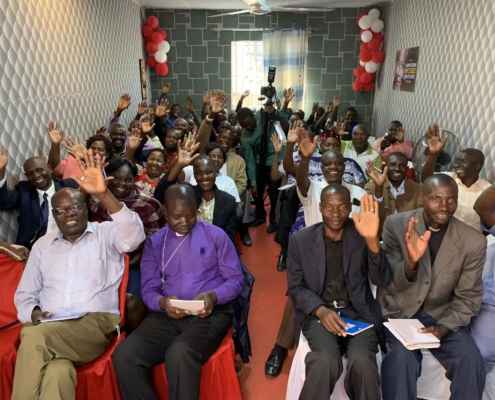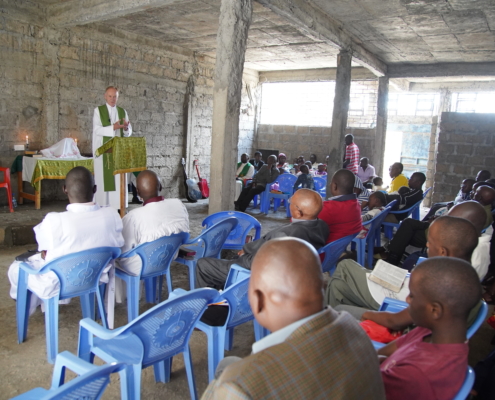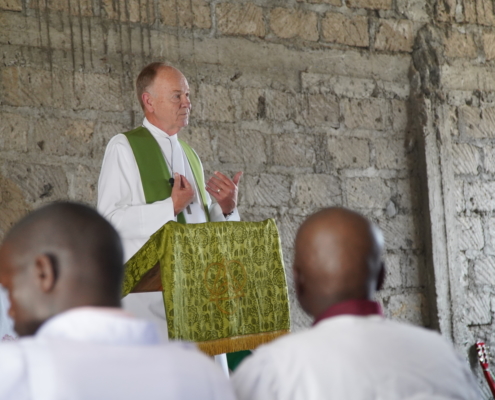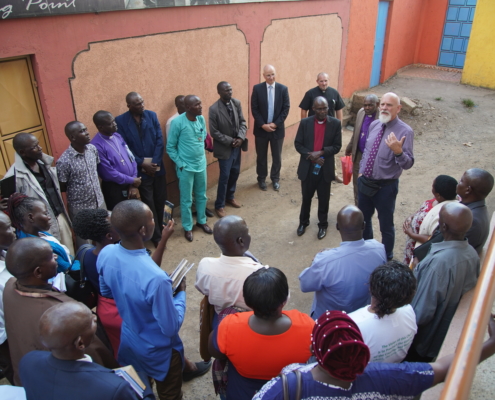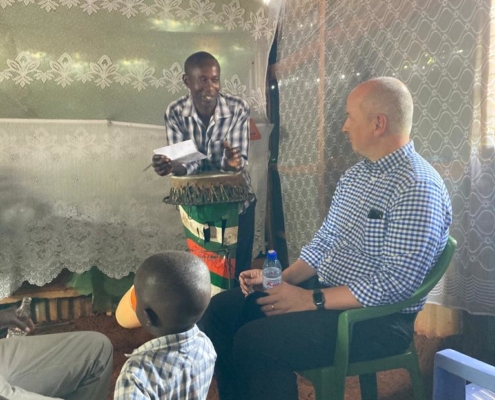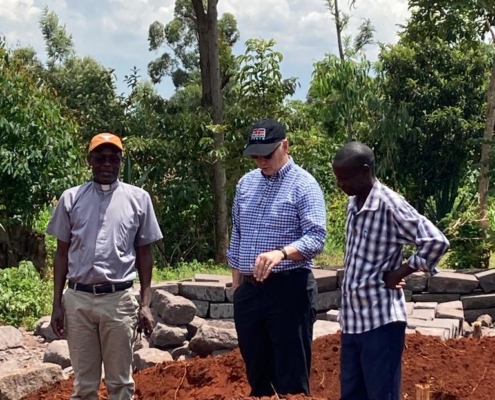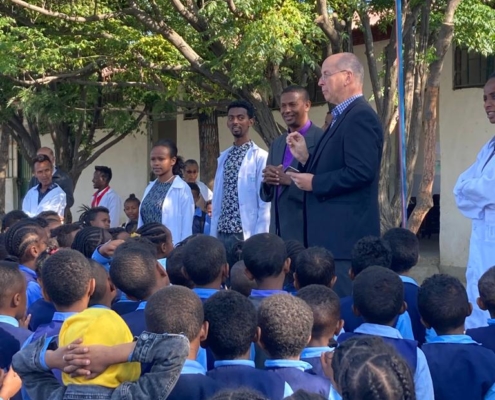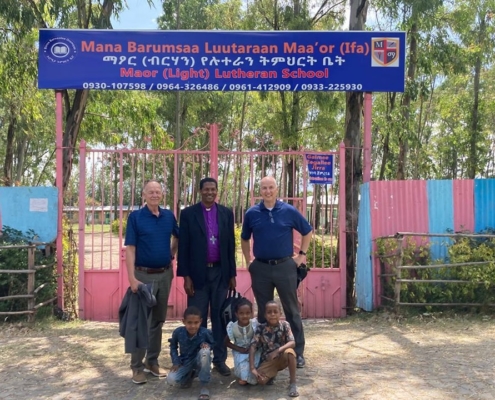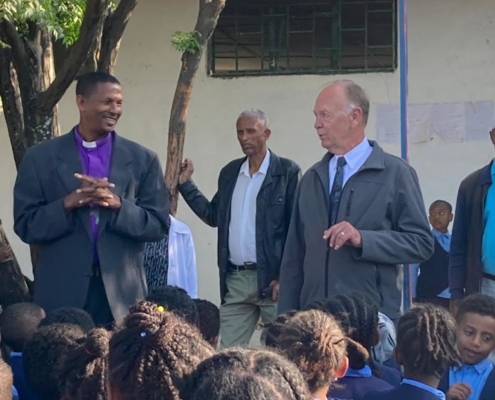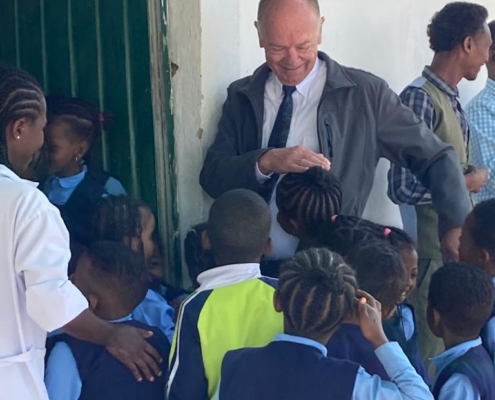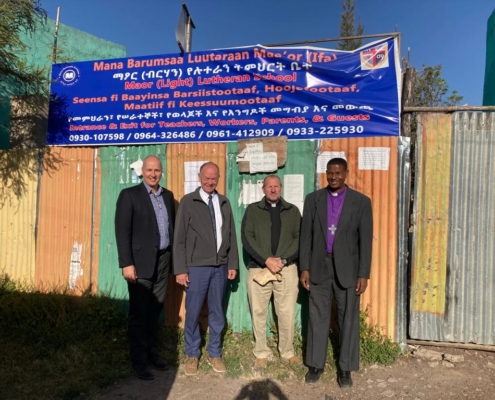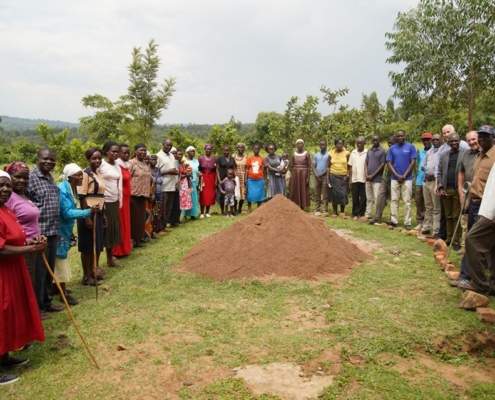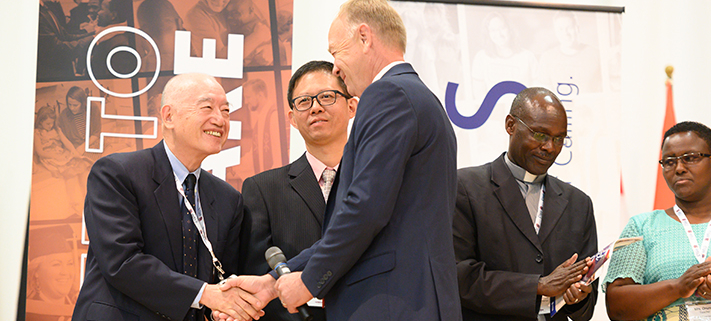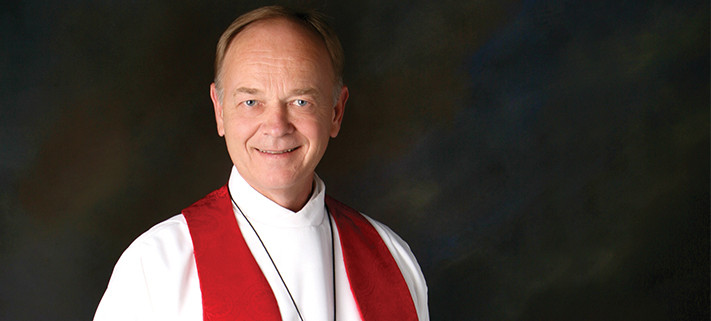Delegates welcomed two new church bodies—the Lutheran Congregations in Mission for Christ—Kenya (LCMC) and the Christian Lutheran Evangelical Church of Taiwan (CLEC)—into confessional Lutheran fellowship with WELS on Wednesday morning.
Representatives from both Kenya and Taiwan were present at the convention: Rev. Mark Onunda, chairman of the LCMC, and his wife, Grace, and Rev. Peter Chen and Mr. Michael Lin from the CLEC.
“My wife and I have traveled far to be with you these few days,” said Onunda when addressing the delegates. “Our short time together will secure a lifelong partnership to advance our positions in many fields of battle.”
The LCMC, a church body of 25 pastors, 46 congregations, and between 3,000 and 5,000 members, is relatively young. Registered as an independent church body in Kenya in 2013, it formed after several of its pastors and churches broke away from the Evangelical Lutheran Church of Kenya because of false teachings. This fledging church body immediately began searching for like-minded confessional Lutherans. After they made contact with WELS World Missions in 2014, Prof. E. Allen Sorum, director of the Pastoral Studies Institute, visited Onunda for the first time in Kenya in 2015. The Lutheran Church of Central Africa—Zambia, WELS’ sister synod, declared fellowship with the LCMC last September.
“With our blessed partnership in place, your brothers and sisters in Kenya can now attend to our most pressing challenges,” says Onunda. “We want to be aggressive in our mission work. We want to be strong in our encouragement of the pastors and congregations already in our church body. . . . There is also the pressing challenge of human need and suffering among our Lutheran people in Kenya.” This includes partnering with WELS to serve South Sudanese refugees living in Kakuma, Kenya.
The Christian Lutheran Evangelical Church (CLEC) in Taiwan started as a mission of WELS, with missionaries serving there from 1979 through 2013. The CLEC is now an independent church body.
“We are happy to be united with WELS in faith,” said Chen to the delegates. “WELS is like a mother to us.”
Chen notes that church members were unsure about what would happen to their church when the missionaries left. “When I go back, I can let my members know WELS hasn’t left us!” he says. “Now they declare we are in fellowship with each other so even if there are no missionaries in Taiwan, it doesn’t make a difference. We are one.”
Chen was also impressed by the theme of the convention, “For the generations to come.” He is training Lin to be a leader for one of the four CLEC churches. Lin will finish his training this year. “This is a good chance to pass on the whole idea of who we are and who we belong to for the next generation,” he says.
This was Lin’s first trip to the United States. He was amazed by the opening worship service. “I will go back [to my congregation] with lots of pictures and stories. I can tell them this is the way our mother church is,” he says.
The CLEC has four congregations, one pastor (Chen), and about 100 members. Three men, including Lin, are training to serve congregations as tent ministers. It is reaching out in a country of 23 million people, of which 5 percent are Christian. “Please pray for us,” says Chen.
Delegates celebrated the declaration of fellowship by joining together to sing, “Christ Is Made the Sure Foundation” (Christian Worship 531).


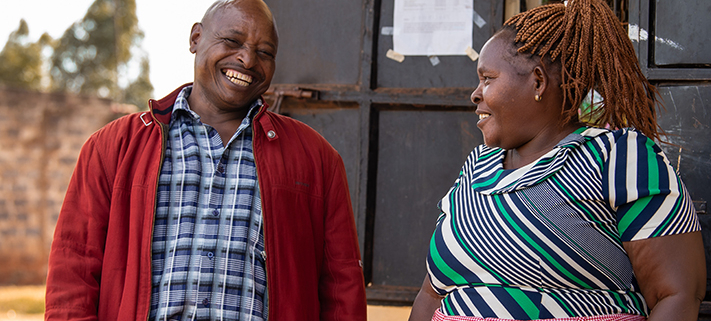
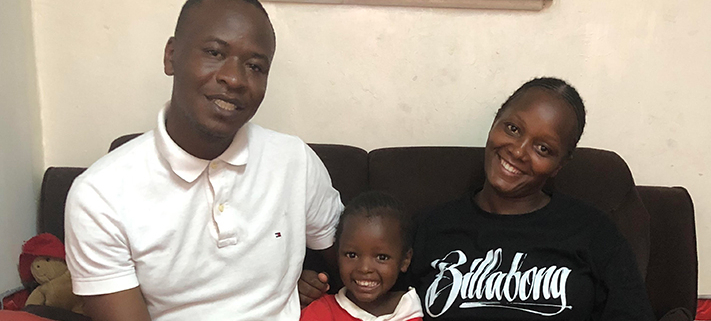
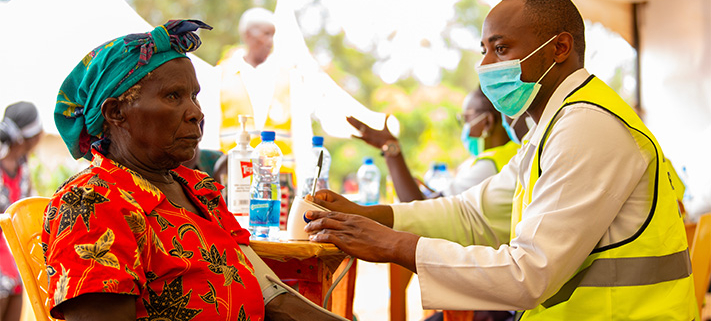
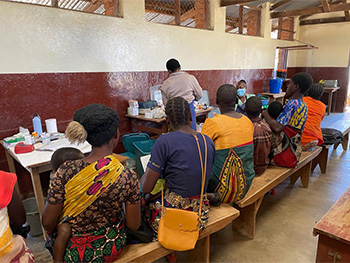
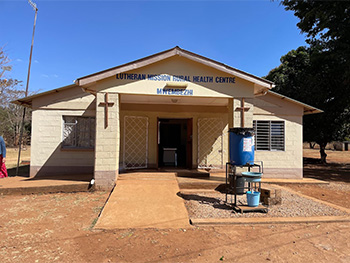
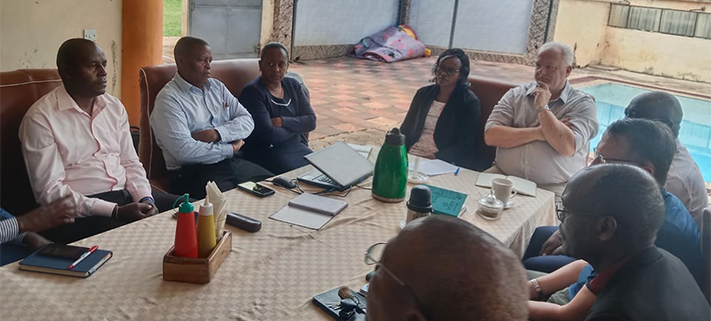
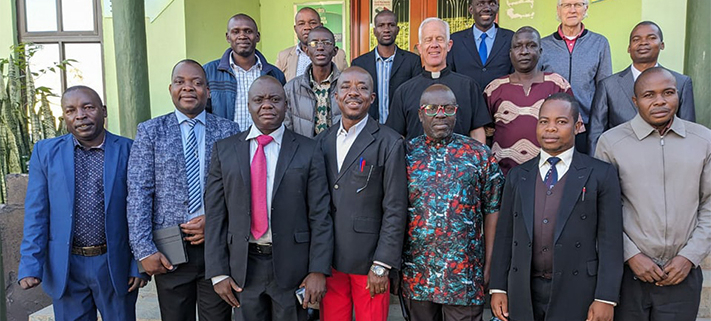
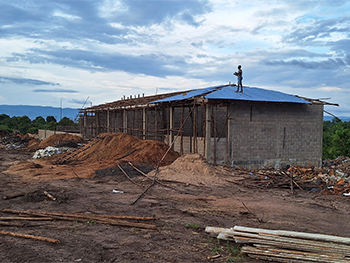
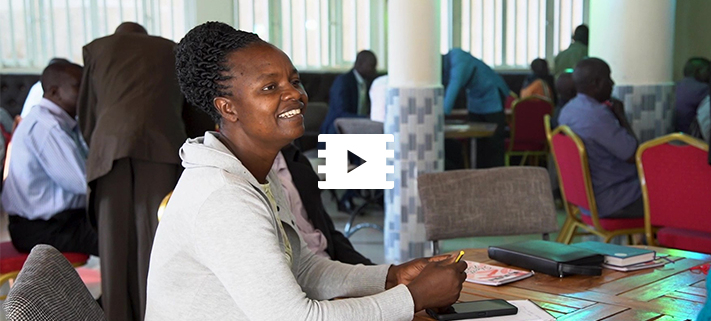
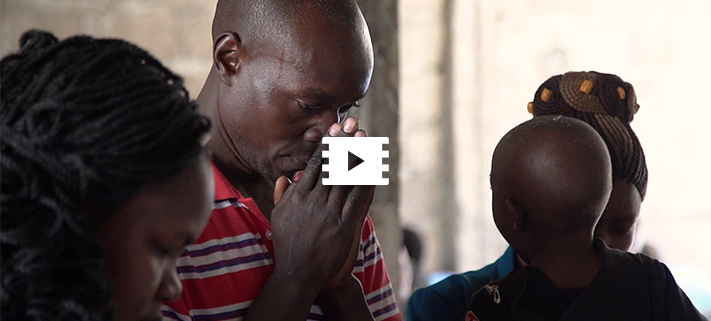
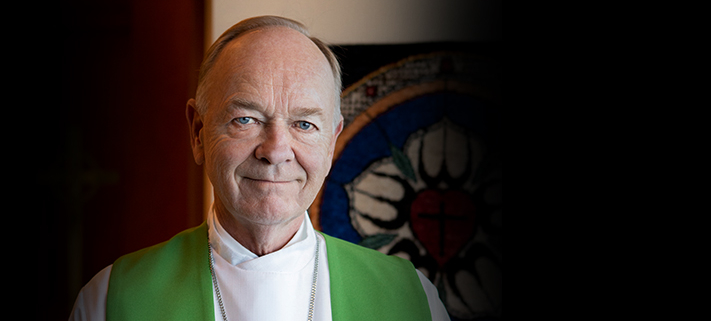
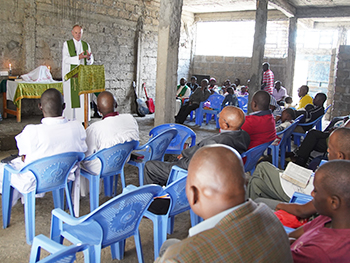 The first visit took place in Nairobi, Kenya. There we were greeted at the airport by representatives of the Lutheran Congregations in Mission for Christ–Kenya (LCMC–Kenya). The LCMC–Kenya was received into fellowship with WELS at our synod convention in 2019.
The first visit took place in Nairobi, Kenya. There we were greeted at the airport by representatives of the Lutheran Congregations in Mission for Christ–Kenya (LCMC–Kenya). The LCMC–Kenya was received into fellowship with WELS at our synod convention in 2019.